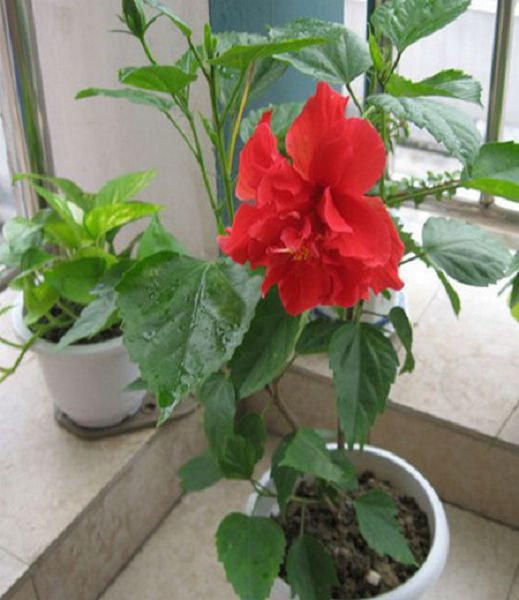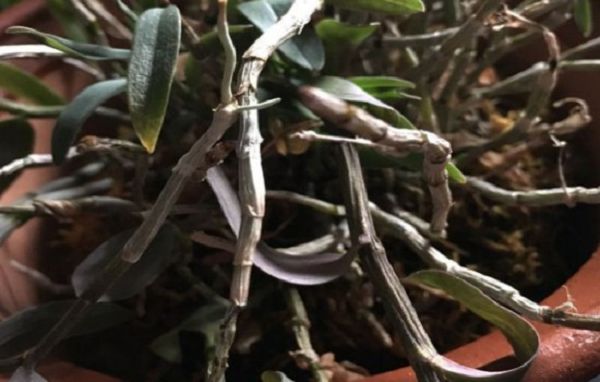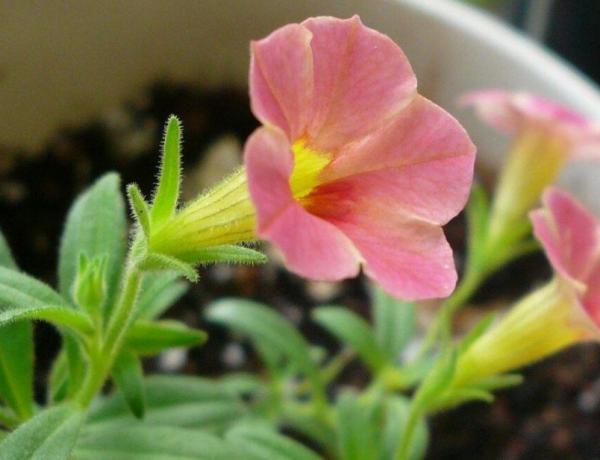How to raise potted hibiscus flowers

Hibiscus originated in Hunan, China, can be cultivated in many places, indoor potted, before and after the courtyard, road park. Hibiscus flower is a very beautiful ornamental tree species, which has been loved by people since ancient times, and its ornamental value is very high, so how to plant hibiscus? Let's go and have a look.
Hibiscus is a deep-rooted plant, the root is stout and slightly fleshy, like a warm, humid, sunny environment, but also drought-tolerant, slightly shade-tolerant. Its nature is extensive, the requirement of soil quality is not strict, and it grows best in loose, permeable and well drained sandy loam soil. Its cultivation should choose the place with good ventilation and fertile soil, especially adjacent to water.
?
The cultivation of hibiscus can be carried out by cutting, ramet or sowing. The best cuttage is from February to March. Choose moist sandy loam or clean river sand, and use 1-to 2-year-old strong branches with a length of 10 to 15 cm as cuttings. Soak the bottom of the cuttings in potassium permanganate solution with a concentration of 3 to 4 grams / liter for 15 to 30 minutes before cutting. The best depth of cuttage is 2 prime 3 of ear length. After planting, watering and plastic film mulching to keep the soil moist, it can take root in about 1 month and blossom in the coming year.
Environment: potted soil choice, potted hibiscus flowers are easy to use larger porcelain pots or plain burning pots, like loose and fertile substrates with good drainage and permeability, and keep the potted soil moist during the growing period.
Soil: hibiscus is not strict with the soil, but grows best in rich, moist, well-drained sandy soil. Like fertile, moist and well-drained sandy loam.
Lighting: hibiscus flowers like the sunny environment, suitable for growing in sunny places, resistant to semi-shade. Xiguang, slightly shady, indoor breeding is easy to put in the sunny south balcony maintenance.
Temperature: hibiscus flower cold resistance is poor, winter should be moved into the room, to ensure that the temperature is controlled at 0 ℃ to 10 ℃, let it naturally dormancy. Hibiscus likes a warm and humid climate, so it should be kept humid.
Watering: hibiscus flower is not resistant to drought, but it is necessary to maintain sufficient water in the growing season to ensure the growth demand. Appropriate water should be deducted during the transparent color of the flower bud to control its leaf growth, so that nutrients are concentrated on the flowers, and watering should be reduced in winter. Hibiscus flowers have a large demand for water, and pay attention to the air humidity of the surrounding small environment. During the growing period, there should be enough water, and the ground should spray water to create small environmental humidity.
Fertilization: hibiscus flowers need to apply more fertilizer and water in spring sprouting period, and a small amount of phosphorus and potassium fertilizer should be applied before and after flowering. Ditches can be made around the plant every winter or spring and some mature organic fertilizer can be applied to make the plant grow exuberantly and bloom luxuriantly. Fertilizing once every half month during the growing period, topdressing before flowering, adding urea and proper phosphate fertilizer to the crown root during flowering, and then watering can make the flower color more beautiful.
Pruning: hibiscus flower is resistant to pruning, it can be trimmed and shaped according to the needs, and the withered branches and leaves can be cut into pieces to ensure the lightness. Pay attention to warm treatment in winter. And it is best to cultivate its plant shape into a shrub.
Insect pests: common red leaf mite is the most common pest of hibiscus flower, which can be sprayed with 73% propargite 3000 times or 20% dimethyl ether EC 1000 times. The harm of small green leafhopper and cotton leafhopper should not be underestimated, which can be sprayed with 5% carbaryl powder.
Related
- Fuxing push coffee new agricultural production and marketing class: lack of small-scale processing plants
- Jujube rice field leisure farm deep ploughing Yilan for five years to create a space for organic food and play
- Nongyu Farm-A trial of organic papaya for brave women with advanced technology
- Four points for attention in the prevention and control of diseases and insect pests of edible fungi
- How to add nutrient solution to Edible Fungi
- Is there any good way to control edible fungus mites?
- Open Inoculation Technology of Edible Fungi
- Is there any clever way to use fertilizer for edible fungus in winter?
- What agents are used to kill the pathogens of edible fungi in the mushroom shed?
- Rapid drying of Edible Fungi



